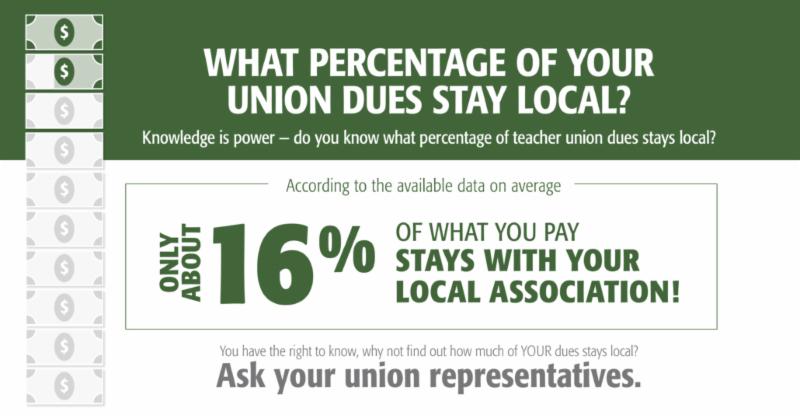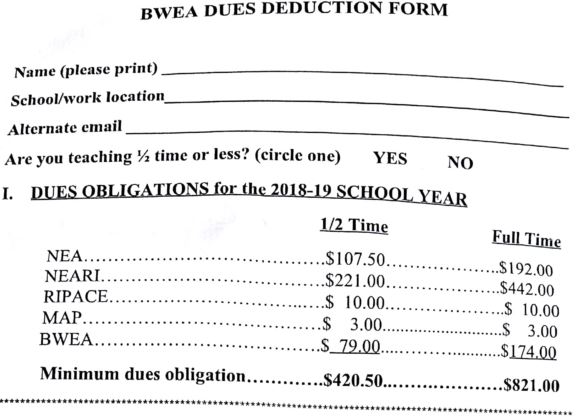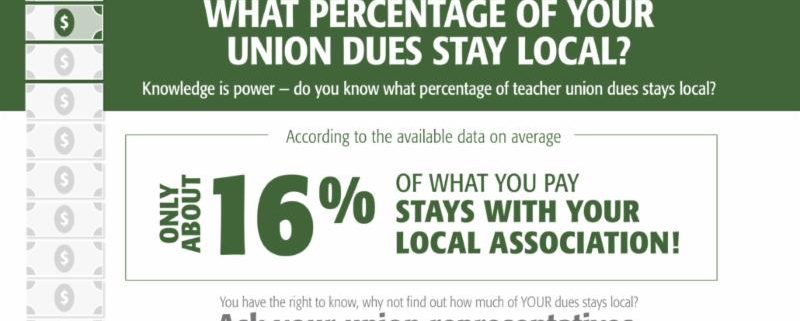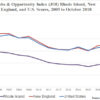NEW: Statement on MA Report re. Teachers Union Dues-Flow. Just 21% stays local in RI?
RI Teachers See About 80% of their Dues Spent on non-Local Salaries and Issues
Detailed Spending Report in the Works
Providence, RI — Public school teachers in Rhode Island and Massachusetts have little or no control over the four-out-of-five of their union dues dollars that support the high salaries and extremist political advocacy of state and national union officials. Conversely, a mere 16%-21% of their hard-earned money is directed to their local unions.

According to a report released yesterday by the Pioneer Institute in Massachusetts, only 16% of dues paid by the average Bay State teacher flows toward their local association. The lions share, instead, is funneled to the Mass. Teachers Association and the National Education Association (NEA). Worse for teachers, according to the federal filings of the NEA, AFT, and AFSCME affiliates, only about 20% of the “local” dues money goes towards bargaining or other representational activities.
In the Ocean State, a document obtained by the Center earlier this fall showed that just 21% of teachers’ dues may stay local; again with significantly larger portions flowing up the line to advance non-collective-bargaining-related state and national agendas.
“Understandably, most union members like their local union reps,” said the Center’s CEO, Mike Stenhouse, “However, most teachers are probably not aware that 80% or more of their dues flow upward to support activities that do not directly help teachers and, as is often the case, political advocacy they strongly disagree with.”
Teachers, and any state or local government employee, who want more control over their family’s financial security, and who may have questions about their rights in the aftermath of the historic JANUS ruling by the US Supreme Court last summer, can find out more about their restored freedoms and their union’s activities at MyPayMySayRI.com. In short, the high-cost of union dues means less money in employees’ paychecks and more money towards a system teachers don’t control. @MyPayMySayRI
 In August, the Center published a letter from the Bristol-Warren Education Association (BWEA, a local NEA union), that not only showed the union misinformed teachers, but also showed that only $174 out of the $821 in proposed annual dues were to go to their local NEA association.
In August, the Center published a letter from the Bristol-Warren Education Association (BWEA, a local NEA union), that not only showed the union misinformed teachers, but also showed that only $174 out of the $821 in proposed annual dues were to go to their local NEA association.
The Center is currently compiling detailed data on exactly how teachers union dues are being spent, including what political agendas and candidates are being unwittingly funded by the dues of teachers across the state of Rhode Island. An initial report is expected soon.




Leave a Reply
Want to join the discussion?Feel free to contribute!